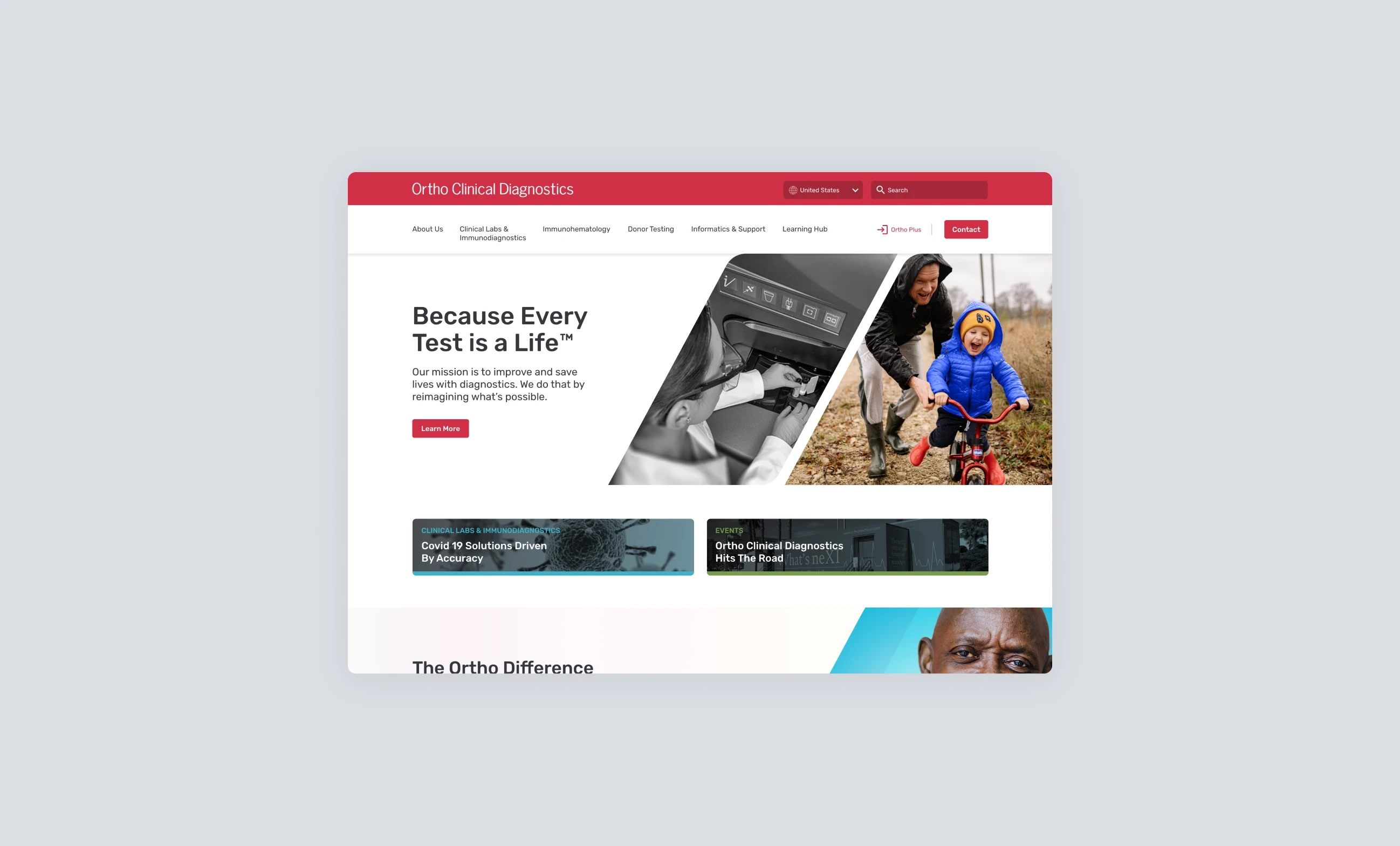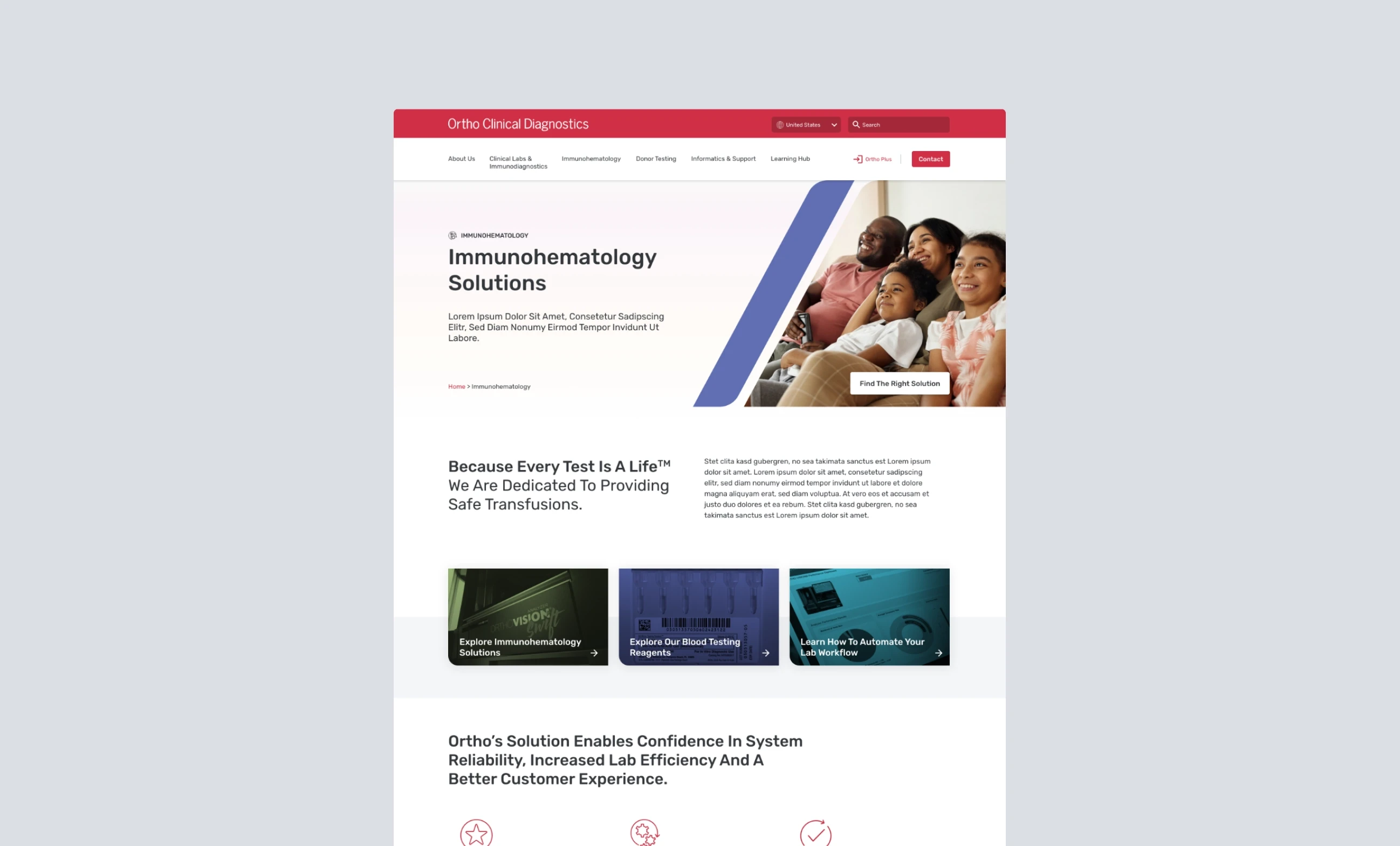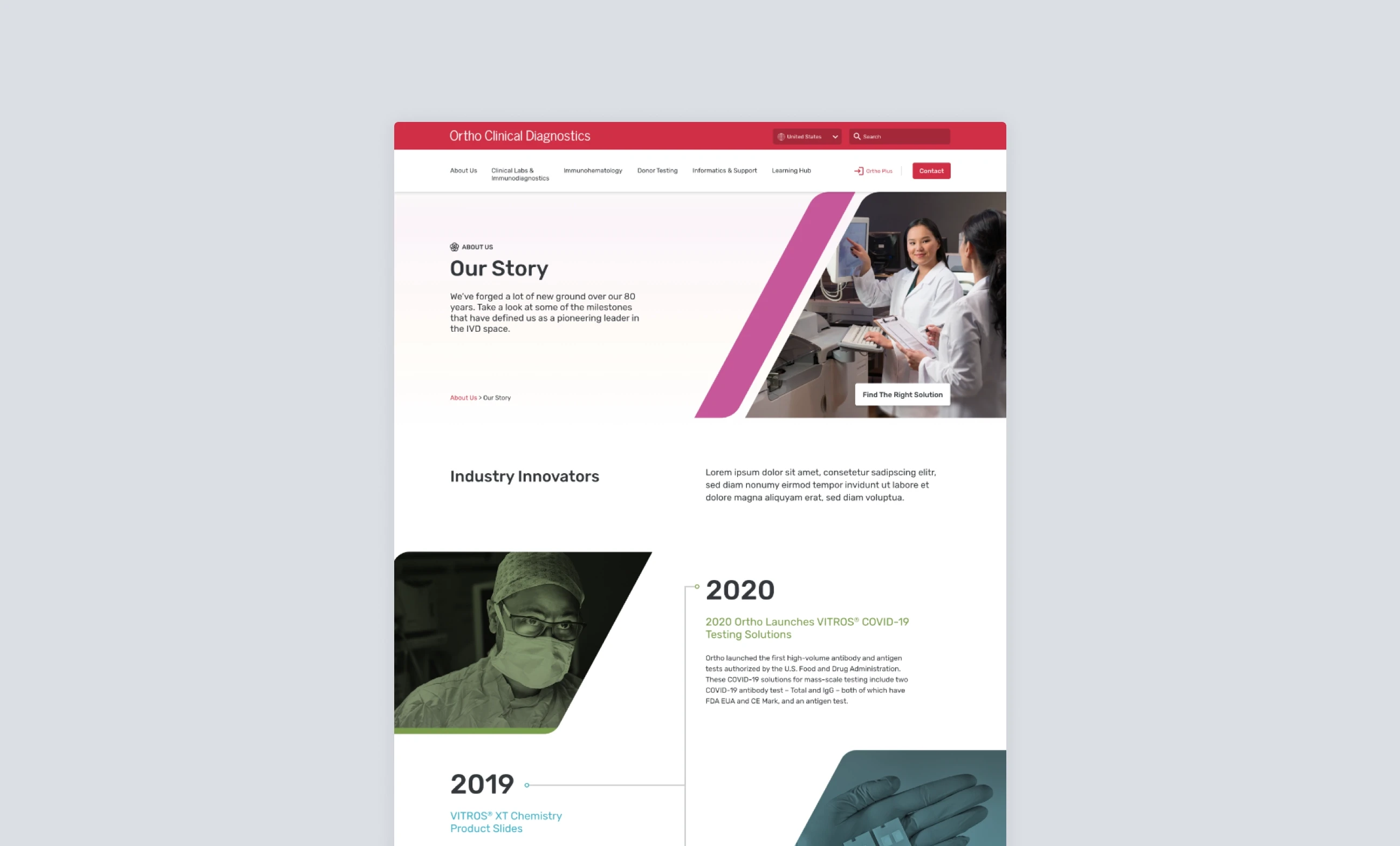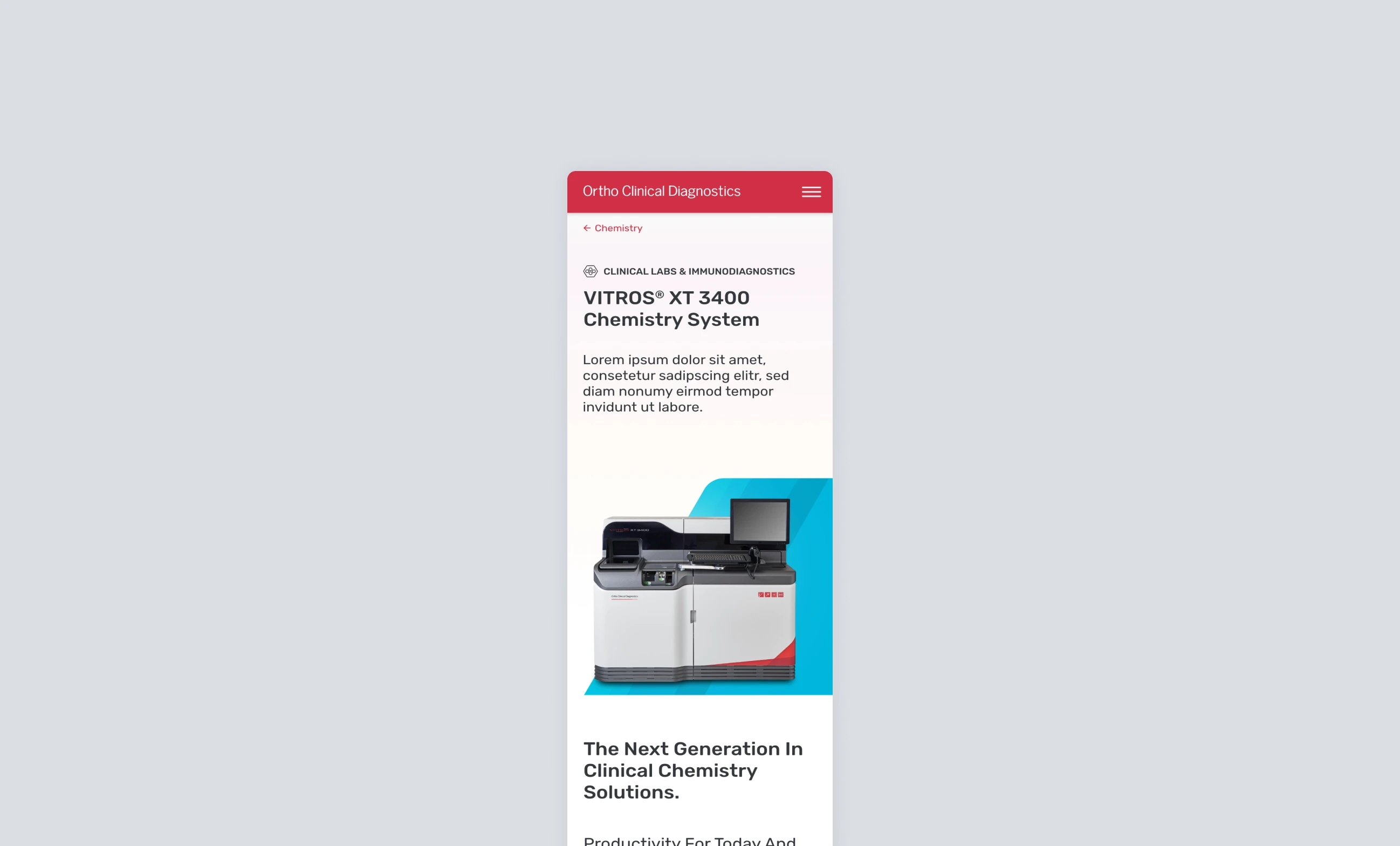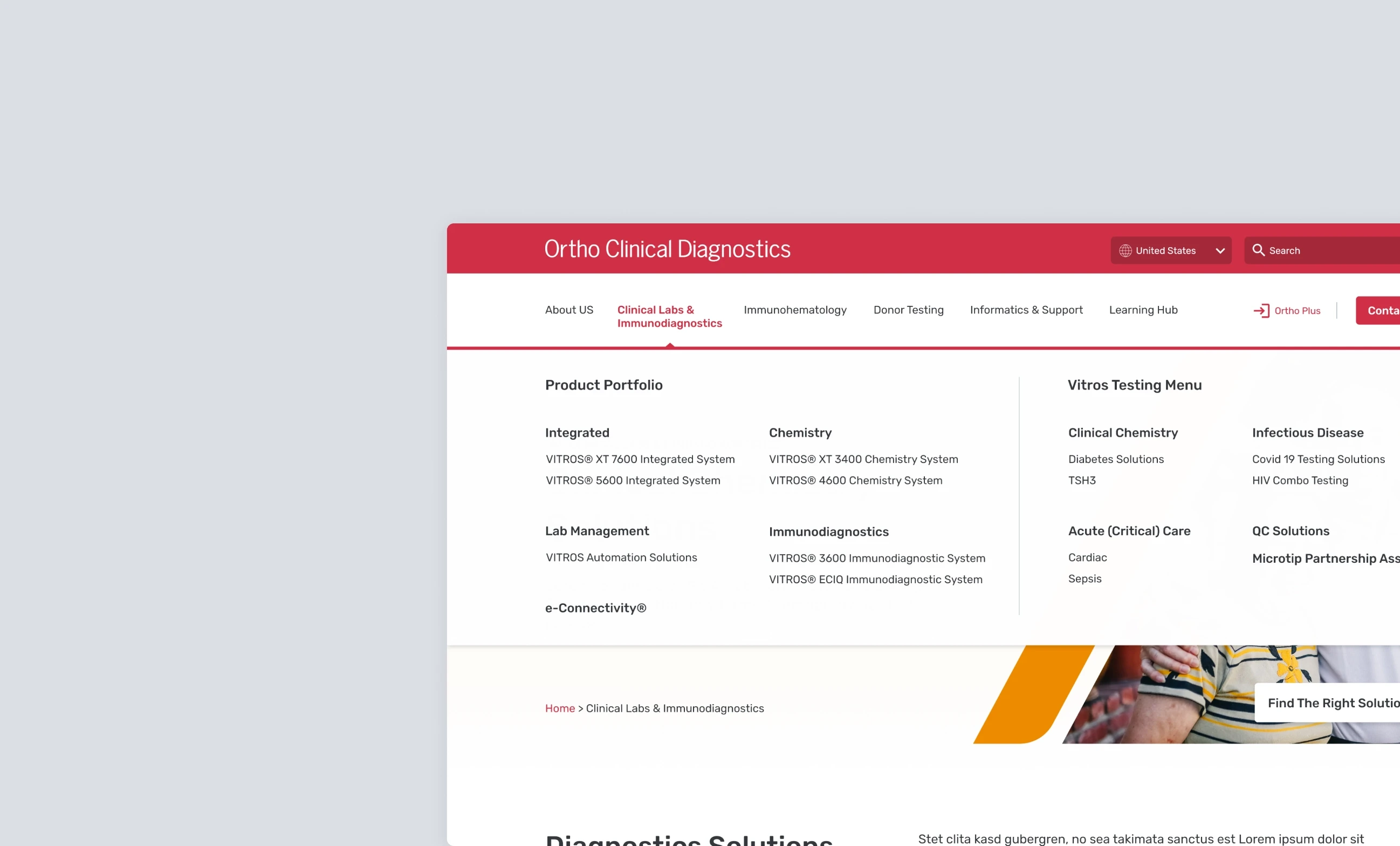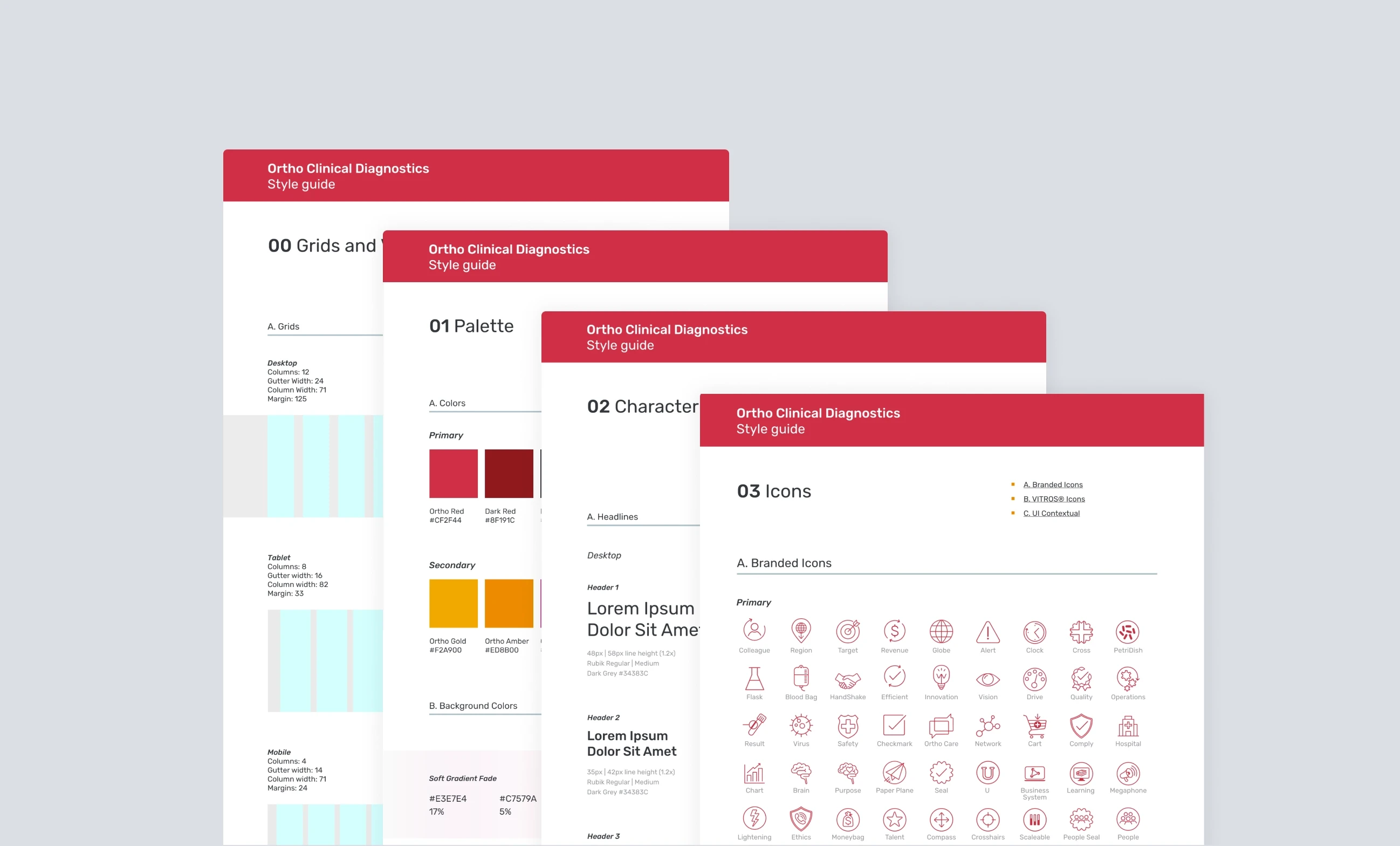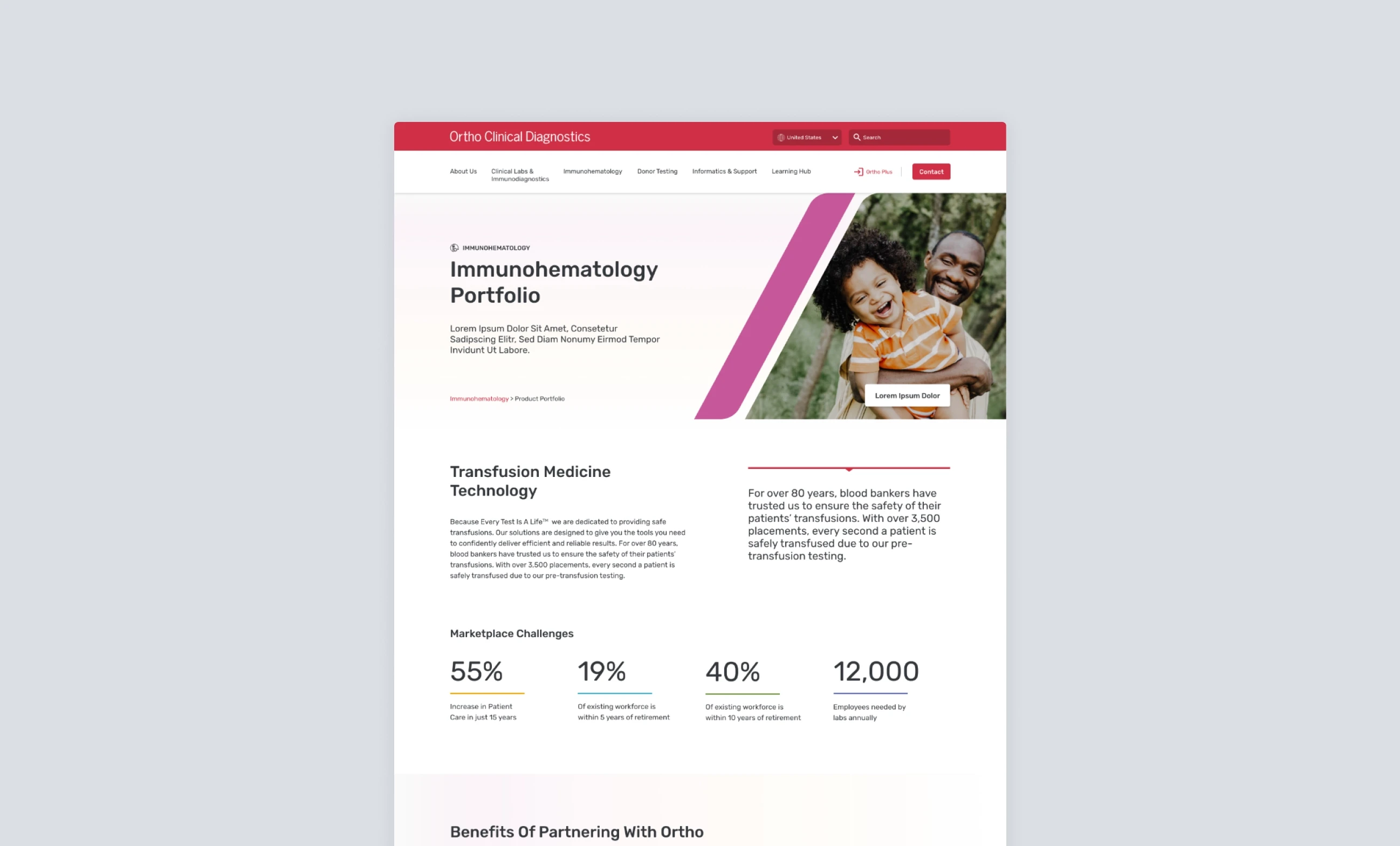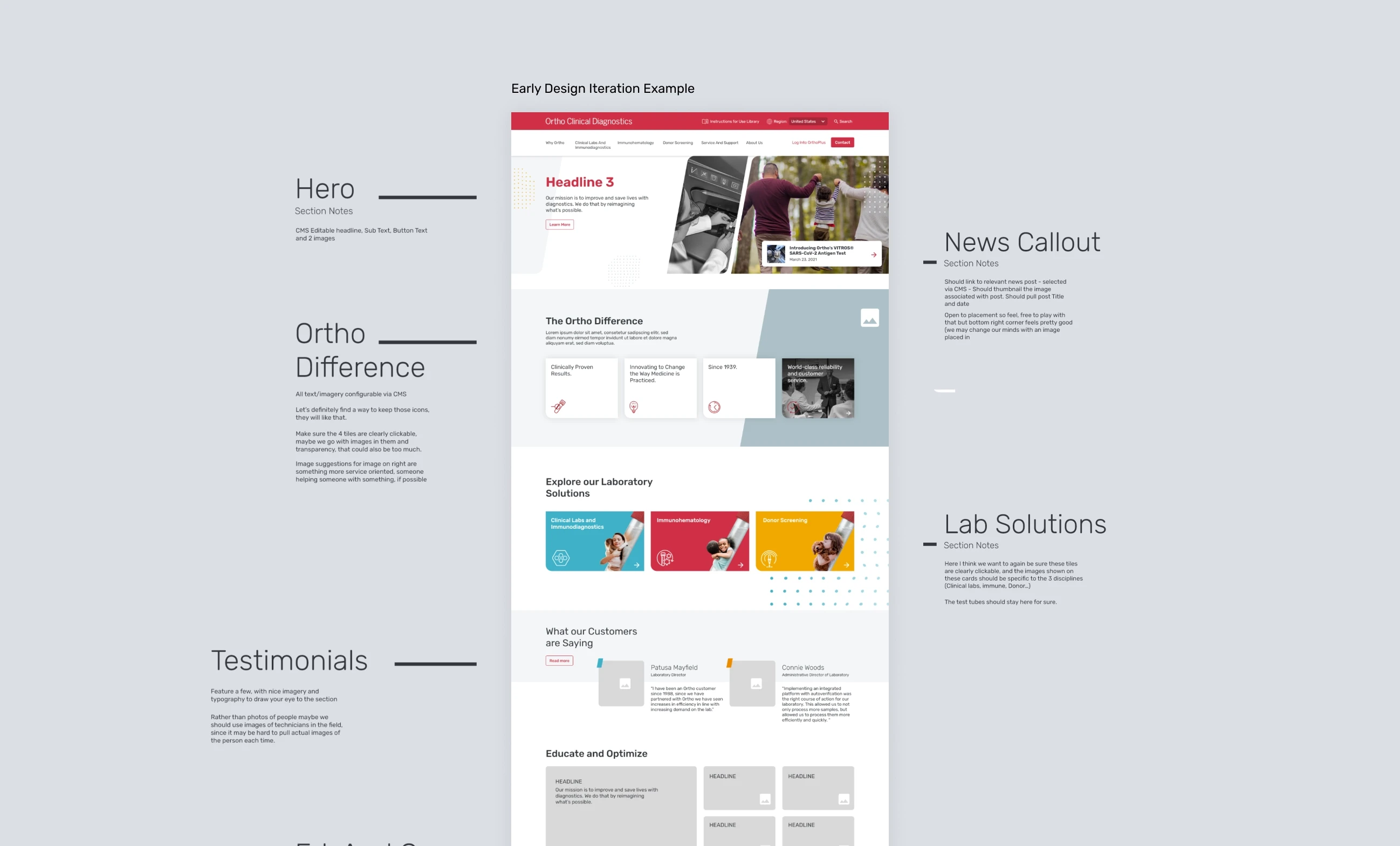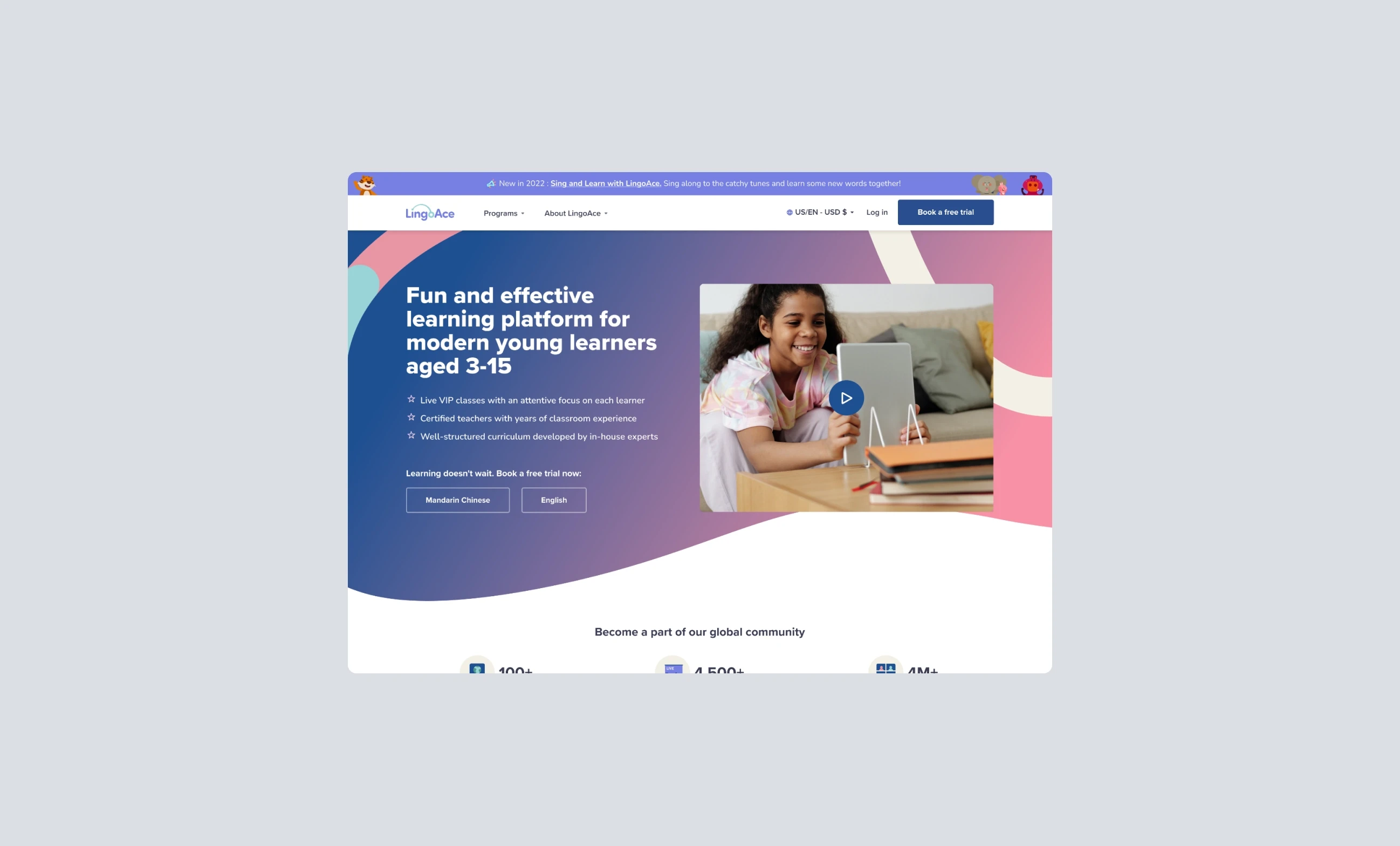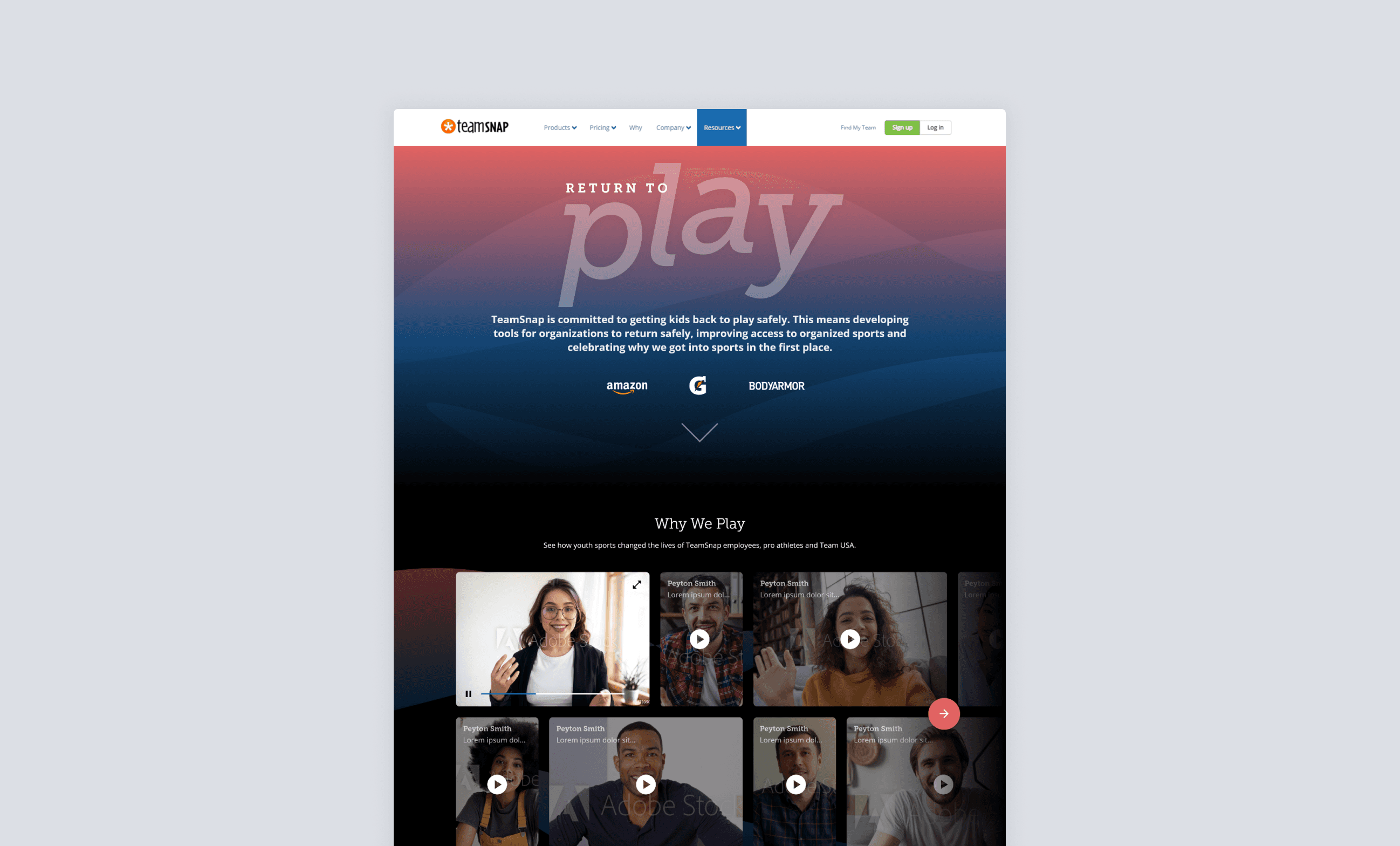Industry
Healthcare Technology
Client
Ortho Clinical Diagnostics
Ortho Clinical Diagnostics: Modernizing Medical Diagnostics Through Design
Bridging Technical Precision with User Experience for a Global Diagnostics Leader
When healthcare professionals need in vitro diagnostics equipment, they're not just looking for machines – they need complete confidence in the accuracy, reliability, and support behind their testing solutions. Ortho Clinical Diagnostics had built this trust since 1939 through their innovative technology and exceptional service. However, their digital presence wasn't effectively communicating their industry leadership or helping users access critical technical information.
My Role
UX Design
UI Design
Deliverables
Development-ready Designs
Design System & Documentation
Platform
Web
The Challenge
Through extensive stakeholder interviews and user testing, we discovered that Ortho's website wasn't just failing to showcase their innovation – it was creating barriers for their users.
"Product information and specifications are hard to find, and it's difficult to compare which tests work on which machines."
— Lab Professional
This sentiment reflected broader issues that were preventing Ortho from effectively serving their global audience. The problems manifested in several critical ways:
Limited Product Discovery: Users struggled to find and compare diagnostic solutions
Technical Documentation Access: Critical Instructions for Use (IFUs) were difficult to locate
Regional Disconnect: Different markets required different content and regulatory compliance
Navigation Complexity: Similar sections like "Why Ortho" and "About Us" created confusion
Support Access: Users had difficulty finding appropriate support channels
My Role
As UX/UI Designer, I worked alongside another designer for 6 months to transform Ortho's digital presence. Our complementary skills allowed us to tackle complex technical requirements while maintaining an intuitive user experience.
The Process
Discovery & Research
Through extensive stakeholder interviews and user testing, we identified two distinct user segments with unique needs and behaviors:
Lab Professionals:
Primarily accessed the site for technical documentation and specifications
Required immediate access to Instructions for Use (IFUs)
Needed detailed product comparisons to inform purchasing decisions
Valued comprehensive service and support information
Healthcare Administrators:
Focused on cost-effectiveness and operational benefits
Required clear product differentiation and ROI information
Valued case studies and evidence-based results
Needed assurance of regional compliance requirements
This clear segmentation of user needs drove our approach to information architecture and guided key design decisions throughout the project.
Information Architecture Deep Dive
Our extensive testing using TreeJack and Octopus.do revealed crucial insights about how users navigated technical information. Through multiple rounds of testing with over 100 users, several key findings emerged:
Technical documentation needed multiple access points throughout the site
Product information required organization by disease state rather than product type
Navigation needed to support both technical and administrative user journeys
Regional requirements demanded flexible content structures
These insights fundamentally shaped our approach to the site's architecture and influenced our subsequent design decisions.
Design System Development
We developed a comprehensive design system that balanced technical precision with ease of use. The system included:
36 unique page designs
19 modular templates
Mobile-responsive layouts
Region-specific variants
Each component was carefully documented for development, ensuring consistent implementation across the platform. This modular approach allowed us to maintain consistency while accommodating the varying needs of different regions and user types.
Iterative Design & Testing
Our user testing revealed crucial insights about building trust:
Product Information
Clear specifications and compatibility
Detailed technical documentation
Evidence and case studies
Regional compliance information
Technical Documentation
Advanced search and filtering
Country/language controls
Clear metadata display
Downloadable formats
Support Access
Region-specific routing
Multiple contact methods
Clear service information
Resource libraries
The Solution
The final platform transformed how users interact with Ortho by creating a more intuitive and efficient experience. At the heart of the solution was a centralized documentation hub that provided advanced search capabilities and intuitive filtering systems, all while maintaining strict regulatory controls. This allowed users to quickly find and access the technical information they needed, regardless of their location or role.
We revolutionized product discovery by organizing information around disease states rather than traditional product categories. This approach, combined with detailed specifications and clear comparison tools, helped users understand which solutions best fit their specific needs. The platform's flexible architecture accommodated regional variations in content and compliance requirements while maintaining a consistent user experience.
The mobile-responsive design ensured accessibility across devices, while clear navigation paths helped users find information efficiently. The modular component system we developed allowed for easy content updates and regional customization, ensuring the platform could grow and adapt to future needs.
Impact
The redesigned platform successfully modernized Ortho's digital presence while solving critical user needs. By improving access to technical documentation and creating clear pathways for lead generation, we helped strengthen Ortho's position as an industry leader. The scalable system we built provided the flexibility needed for regional content requirements while maintaining global brand consistency.
More importantly, user testing validated our approach, with lab professionals and healthcare administrators both reporting significant improvements in their ability to find and access critical information. The platform now effectively serves both technical users needing detailed documentation and administrative users seeking strategic information.
Looking Forward
This project reinforced the importance of balancing technical precision with user experience. By deeply understanding different user segments and their needs, we created a platform that could adapt to regional requirements while maintaining the core strengths that made Ortho successful.

